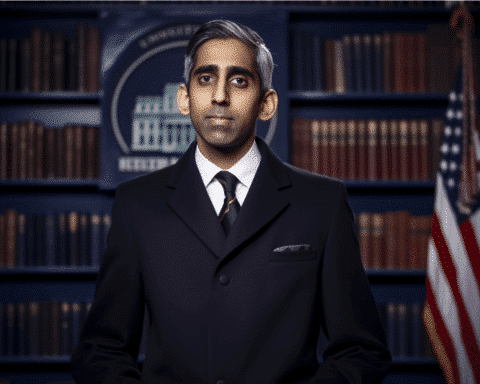A group of 14 attorneys general from across the United States has filed lawsuits against TikTok, accusing the social media platform of contributing to a mental health crisis among children and teenagers. The bipartisan group, led by New York Attorney General Letitia James and California Attorney General Rob Bonta, claims that TikTok’s design and business model are intentionally addictive, keeping young users glued to their screens for extended periods, which harms their mental well-being.
The lawsuits highlight several features of the app that they argue are particularly problematic for young users. These include TikTok’s endless scrolling feed, which encourages excessive screen time, as well as viral “challenge” videos, which sometimes promote risky or dangerous behaviors. Notifications sent late at night are also said to disrupt sleep patterns, further impacting children’s mental health.
Each lawsuit was filed individually by the states involved, and together they form part of a broader wave of legal challenges facing TikTok. In addition to these recent actions, the platform is also battling a potential nationwide ban, a separate lawsuit from the U.S. Department of Justice for allegedly collecting children’s data illegally, and various other state-level legal actions.
Increasing Regulatory Pressure
In June, New York’s governor signed a bill aimed at regulating social media algorithms, a move that could force platforms like TikTok to alter how they present content to users under the age of 18. The law requires platforms to display content in chronological order for younger users, an attempt to limit the addictive nature of algorithm-driven feeds.
In a related move, 42 state attorneys general recently urged U.S. Surgeon General Vivek Murthy to mandate warning labels on social media apps, cautioning users about potential mental health risks, especially for children and teenagers.
While TikTok maintains that it prioritizes safety for its younger audience, with features like screen-time limits and parental control options, critics argue that the platform’s core design encourages unhealthy behaviors. The states involved in the lawsuits claim that TikTok’s measures are insufficient and that the company’s primary goal is to maximize the amount of time young users spend on the app to boost advertising revenue.
A Focus on Profit Over Safety
According to the lawsuits, TikTok’s business model centers on keeping young users engaged for as long as possible, using algorithms that recommend increasingly compelling content. The attorneys general argue that this focus on prolonged engagement is harmful, leading to compulsive use that interferes with young people’s development and their ability to attend to personal responsibilities.
In fact, the lawsuit filed by New York Attorney General Letitia James alleges that TikTok is aware of the negative effects its platform has on children and teenagers. The complaint references internal documents suggesting that TikTok views children under the age of 13 as a critical demographic, despite claiming that its platform is only intended for users aged 13 and older.
The complaints also draw attention to the platform’s massive financial success. TikTok’s U.S. revenue in 2023 reached $16 billion, with an estimated $2 billion coming from ads targeting users between the ages of 13 and 17, according to the lawsuits. These figures, according to the attorneys general, underscore how TikTok has prioritized profit over the safety and well-being of its youngest users.
Impact on Body Image and Dangerous Challenges
Beyond the addictive nature of TikTok’s content feed, the lawsuits also point to specific features that contribute to mental health issues among young users. One key concern is TikTok’s use of beauty filters, which alter users’ appearances to fit idealized and often unrealistic beauty standards. The attorneys general argue that these filters encourage negative social comparison and body image issues, contributing to mental and physical health problems in teens.
Additionally, viral challenges on the platform have been linked to dangerous behavior. The lawsuit highlights one tragic example from earlier this year, where a Brooklyn teenager died while participating in “subway surfing,” a dangerous stunt that was promoted through TikTok challenges. Despite the company’s cooperation with authorities to remove similar content in the past, the lawsuits claim that TikTok’s viral trends continue to encourage risky actions among its users.
Legal Consequences
The lawsuits seek financial penalties against TikTok, including the repayment of profits earned from ads directed at children and teens in New York. Furthermore, the attorneys general hope to force TikTok to make significant changes to its platform to protect young users from compulsive use and harmful content.
As TikTok continues to defend itself against mounting legal challenges, the outcome of these lawsuits could have significant implications for the platform’s future in the United States, particularly in how it is regulated and its approach to protecting young users.

